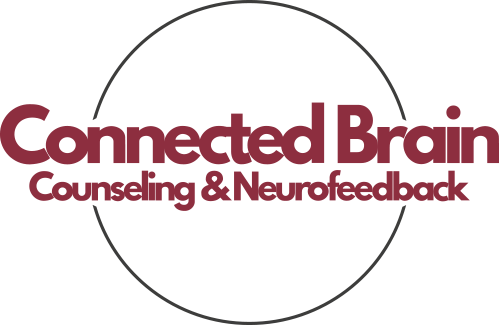For veterans suffering from PTSD, the symptoms can be overwhelming and difficult to manage. PTSD in veterans can manifest itself in a variety of ways, including flashbacks, nightmares, intrusive thoughts, and avoidance of certain situations. The condition can leave veterans feeling isolated, anxious, and depressed. However, there are alternative therapies to medication that can help manage the symptoms of PTSD in veterans. In this blog post, we will discuss the symptoms of PTSD in veterans and the various forms of therapy and neurofeedback therapy that can help alleviate stress associated with PTSD.
Symptoms of PTSD in Veterans
PTSD, or Post-Traumatic Stress Disorder, is a mental health disorder that can affect those who have experienced a traumatic event such as war or other life-threatening situations. The symptoms of PTSD can range from mild to severe and can have a major impact on quality of life. Common symptoms of PTSD in veterans include:
• Flashbacks and nightmares
• Intense emotional distress
• Difficulty sleeping
• Difficulty concentrating
• Feeling numb or detached from others
• Avoiding activities or places that remind you of the trauma
• Feeling on edge or easily startled
• Irritability or outbursts of anger
If you are a veteran experiencing these symptoms, it is important to seek help from a qualified therapist. A therapist can help you work through your experiences and develop effective coping strategies. Therapy can also help to identify any underlying issues that might be contributing to your PTSD.
How Therapy Helps with PTSD
Many veterans with PTSD experience symptoms like flashbacks, nightmares, intrusive memories, and intense feelings of guilt or shame. It can be difficult to manage these symptoms without the help of a mental health professional. Therapy is an effective treatment option for PTSD, as it helps veterans develop coping skills and healthy ways of managing their emotions. Through therapy, veterans can gain insight into their trauma and learn how to express their feelings in a constructive manner providing both resiliency and calming the nervous system.
Cognitive-behavioral therapy (CBT) is one of the most widely used treatments for PTSD in veterans. CBT involves helping individuals identify distorted thoughts and beliefs related to their traumatic experience and replace them with more positive ones. It also focuses on providing practical techniques to manage symptoms such as anxiety and depression. Additionally, cognitive-processing therapy (CPT) has been found to be effective in helping veterans with PTSD process their traumatic memories in a safe, controlled environment.
Therapy can also help veterans reconnect with loved ones and rebuild their relationships. This can be especially helpful for those struggling with guilt or shame after experiencing a traumatic event. Through family counseling, couples counseling, or individual therapy, veterans can begin to heal emotionally and re-establish healthy relationships.
Therapy also provides veterans with a safe space to talk about their experiences and gain a better understanding of their mental health. Through psychotherapy, veterans can learn to identify triggers that cause distress and discover ways to reduce their symptoms. By talking through their experiences and understanding the underlying cause of their distress, they can begin to make progress in their recovery journey.
When Therapy Isn’t Enough…Enter, Neurofeedback Therapy
For those looking for alternative treatments to medication, there are options such as neurofeedback therapy that may be beneficial. Neurofeedback therapy is a form of biofeedback that helps individuals regulate their nervous system responses by providing real-time feedback on brainwave activity. By teaching patients to control their own brainwave activity, this form of therapy can provide relief from PTSD symptoms such as anxiety, hypervigilance, and sleep disturbances.
Furthermore, unlike medications that treat the condition through chemical regulation, this type of treatment does not involve drugs or other potential side effects. Neurofeedback has been found to significantly reduce symptoms of PTSD for many who have used it. This type of therapy also offers people with PTSD hope and a sense of personal control over their condition, which is often lacking due to the disorder.
Additionally, when used in conjunction with traditional psychological counseling, neurofeedback therapy can help veterans take greater strides toward managing their mental health. The combination of these two approaches have shown to be more effective than either approach used alone. By working with experienced professionals such as psychologists or counselors, veterans struggling with PTSD can learn how to manage their disorder effectively with various methods like psychotherapy and neurofeedback. Through this combination, they may find renewed hope and an improved quality of life.
Medication vs Neurofeedback Therapy for PTSD
When it comes to managing the symptoms of PTSD in veterans, there are two options available: medication and neurofeedback therapy. While medications can be an effective treatment for some individuals, they can also come with unwanted side effects. Neurofeedback therapy, on the other hand, is a non-invasive treatment with no reported side effects.
Medication is most often used to treat the anxiety and depression associated with PTSD. Common types of medications prescribed include selective serotonin reuptake inhibitors (SSRIs) and benzodiazepines. SSRIs are most often used to treat depression and panic attacks while benzodiazepines are used to treat the insomnia associated with PTSD. While these medications can be helpful in the short-term, they can also cause long-term side effects such as increased anxiety, weight gain, and sexual dysfunction.
Neurofeedback therapy is a non-invasive form of therapy that uses brainwave monitoring to help individuals learn how to control their brain activity. This type of therapy teaches individuals how to recognize when their brains are in a state of distress and how to regulate it using biofeedback techniques. The goal of this type of therapy is to reduce symptoms of PTSD by training the brain to better regulate itself and promote relaxation.
Neurofeedback therapy has been shown to be successful in helping veterans manage the symptoms of PTSD without any reported side effects. Studies have found that it is more effective than medication in reducing symptoms of PTSD, including anxiety, depression, and insomnia. Additionally, it can provide long-term relief from symptoms as opposed to short-term relief with medications.
Overall, neurofeedback therapy is a safe and effective alternative to medication for treating PTSD in veterans. It can provide long-term relief from symptoms with no reported side effects and can help individuals gain better control over their brain activity. If you or someone you know is struggling with the symptoms of PTSD, consider seeking out a therapist who offers neurofeedback therapy in Denver.
Connected Brain Counseling in Denver Offers Neurofeedback and Therapy for Veterans with PTSD
At Connected Brain Counseling in Denver, we understand the unique struggles veterans with PTSD face. Our team of therapists and specialists are dedicated to helping veterans take back control of their lives. We offer specialized therapies and treatments to help alleviate the symptoms associated with PTSD.
Our team provides a range of therapies and treatments that can help veterans address the underlying issues that are contributing to their PTSD. This includes cognitive behavioral therapy (CBT), exposure therapy, qEEG Brain Mapping Therapy, and trauma-focused therapies.
When these traditional therapies are not providing enough relief, we also offer neurofeedback therapy as an alternative for PTSD. Neurofeedback is a non-invasive therapy that utilizes brain mapping technology to identify patterns and areas of dysregulation in the brain. This information is then used to create a personalized training plan to help the veteran retrain their brain to better regulate itself.
Neurofeedback has been proven to be effective in managing the symptoms of PTSD and other mental health issues, such as anxiety and depression. It can help reduce intrusive thoughts, decrease hyperarousal, improve sleep, and increase emotional regulation.
At Connected Brain Counseling in Denver, we understand that medication is not always the best option for treating PTSD. We strive to provide veterans with a comprehensive treatment plan that uses both traditional and alternative therapies to help them manage their symptoms without relying on medication.
If you or a loved one are a veteran struggling with PTSD, contact us today. We are here to help you find the right path to recovery. Set up a consultation today.





